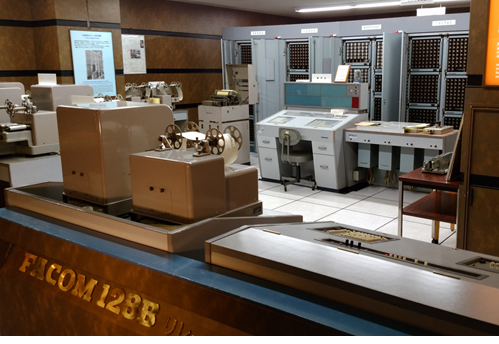Archived content
NOTE: this is an archived page and the content is likely to be out of date.
Fujitsu Relay-type Computer "FACOM128B" Registered as "Essential Historical Materials for Science and Technology"
Fujitsu Limited
-
[1] Relay-type automatic computer
A computer that uses relays (switches that operate magnetically) as logic elements, utilizing relay technology that was used in devices such as telephone switches, which gave Fujitsu its competitive edge at the time.
-
[2] In an operational state to this day
An operational exhibit in the Ikeda Memorial Room, one of Fujitsu’s facilities (located in Fujitsu’s Numazu Complex, Numazu, Shizuoka prefecture, Japan). The FACOM138A, its sister machine, is also preserved in an operational state in Fujitsu Technology Hall (located in Fujitsu’s Kawasaki Research & Manufacturing Facilities, Kawasaki, Kanagawa prefecture, Japan).
About Fujitsu
Fujitsu is the leading Japanese information and communication technology (ICT) company, offering a full range of technology products, solutions, and services. Approximately 140,000 Fujitsu people support customers in more than 100 countries. We use our experience and the power of ICT to shape the future of society with our customers. Fujitsu Limited (TSE: 6702) reported consolidated revenues of 4.1 trillion yen (US $39 billion) for the fiscal year ended March 31, 2018. For more information, please see www.fujitsu.com.
All company or product names mentioned herein are trademarks or registered trademarks of their respective owners. Information provided in this press release is accurate at time of publication and is subject to change without advance notice.
Date: 21 August, 2018
City: Tokyo
Company:
Fujitsu Limited
